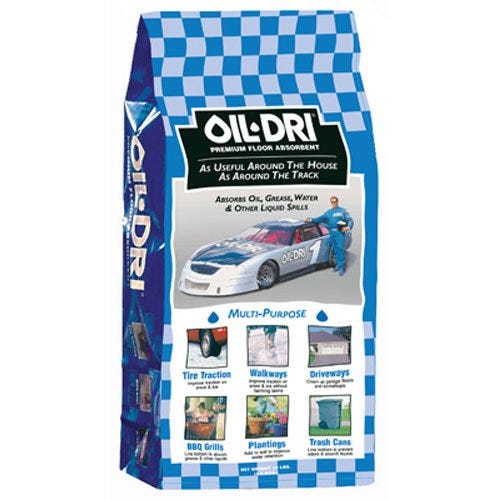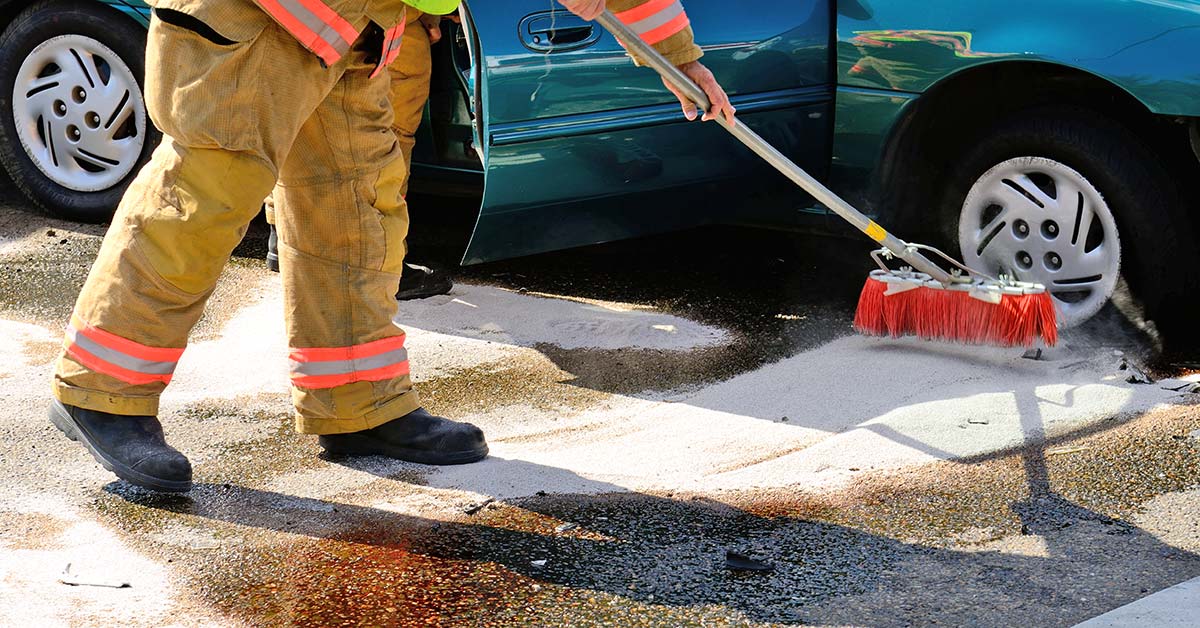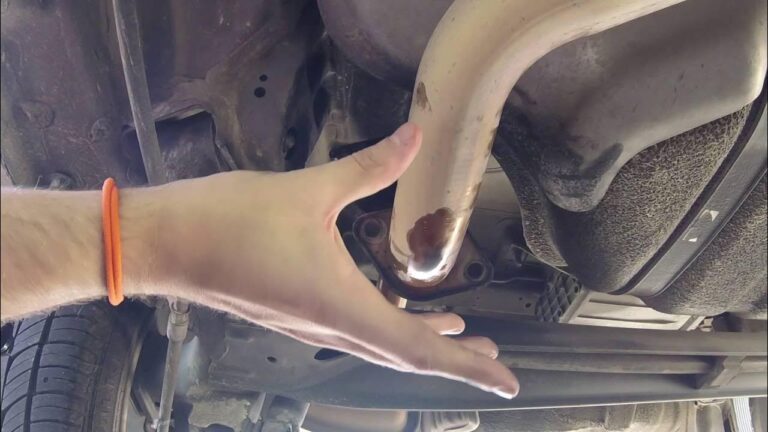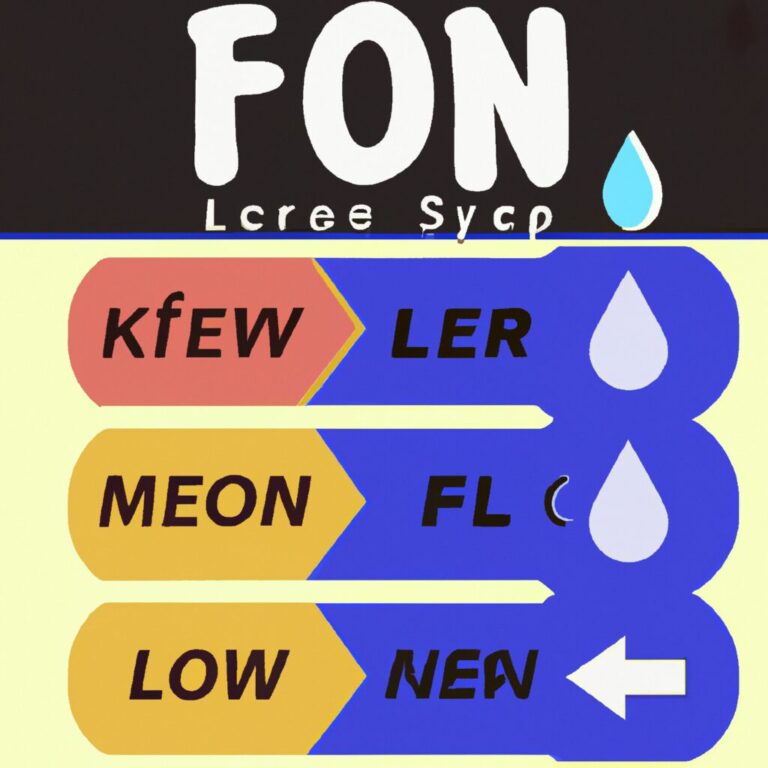How to Clean Up Car Oil Spills
To clean up car oil spills, sprinkle cat litter over the spill to absorb the oil. Sweep up the litter and dispose of it properly.
Car oil spills can be messy and damaging to the environment if not cleaned up promptly and correctly. Whether the spill occurred in your garage or driveway, it’s crucial to address it quickly. This article will provide you with effective tips and techniques to clean up car oil spills using common household items.
By following these simple steps, you can ensure a clean and safe environment for your family and your community.

Credit: www.progressive.com
Preparing To Clean Up
Preparing to clean up car oil spills is a crucial step to ensure the process is executed effectively and safely. Before diving into the cleaning process, it is essential to gather the necessary materials and implement safety measures to prevent any accidents or further environmental damage.
Gather Necessary Materials
- Oil Absorbent Materials: Such as kitty litter, sawdust, or commercial oil absorbents.
- Protective Gear: Including gloves, protective eyewear, and old clothing you don’t mind getting dirty.
- Heavy-duty Trash Bags: To dispose of the soiled absorbents and any contaminated items.
- Oil Disposal Container: A sealed container to safely store the used absorbent materials.
- Cleaning Agents: Degreaser or oil stain remover to clean the affected surface.
- Water and Detergent: For cleaning tools and surfaces after the cleanup.
- Appropriate Tools: Such as a broom, dustpan, and absorbent cloth or towels.
- Spill Response Kit: If available, utilize the contents of a spill response kit for handling oil spills.
Ensure Safety Measures
- Contain the Area: Use barriers or cones to cordon off the affected area to prevent accidents or further contamination.
- Ventilation: Ensure that the cleaning area is well-ventilated to minimize exposure to fumes.
- Handle With Caution: Exercise care when handling oil-soaked materials to prevent skin contact and potential slips.
- Dispose of Materials Properly: Store used absorbents in a sealed container and dispose of them according to local regulations.
Containing The Spill
Containing the Spill:
Use Absorbent Materials
Place absorbent pads or kitty litter over the oil spill to soak up the oil quickly.
Create Barriers
Surround the spill with sandbags or socks filled with absorbent material to prevent the oil from spreading further.
Removing The Oil
Removing the Oil: To effectively clean up car oil spills, the first step is to remove the oil from the affected surface. This process involves scraping off excess oil, applying an oil absorbent, and cleaning with detergent.
Scrape Excess Oil
- Use a scraping tool or spatula to carefully remove any visible oil residue from the surface.
- Be gentle to avoid spreading the oil further and causing more damage.
Apply Oil Absorbent
- Spread an oil absorbent material, such as cat litter or baking soda, over the oil spill area.
- Let it sit for a few hours to absorb the oil before sweeping or vacuuming it up.
Clean With Detergent
- Mix a solution of warm water and dish detergent to scrub the remaining oil stains.
- Use a sponge or brush to work the detergent into the affected area, then rinse with clean water.

Credit: www.autoweek.com
Disposing Of The Waste
When cleaning up car oil spills, one crucial aspect is the proper disposal of waste. Disposing of oil-contaminated materials must be done carefully to prevent environmental harm and ensure compliance with regulations.
Transfer Oil And Absorbent
To dispose of oil spills properly, firstly transfer any oil and absorbent materials to a designated waste container. Use a funnel to carefully pour the collected oil into a sealable, labeled waste oil container. Ensure the absorbent materials, such as kitty litter or commercial absorbents, are also placed into the waste container, preventing any leakage or spillage.
Properly Dispose Of Waste
- Local regulations–
- Check local regulations and guidelines for disposing of oil-contaminated waste. Each area may have specific requirements for the disposal of such hazardous materials.
- Recycling–
- Consider recycling the used oil. Many auto parts stores and recycling centers accept used motor oil for recycling, keeping it out of the environment and providing an eco-friendly solution.
- Professional disposal–
- If the amount of spill waste is substantial, consider hiring a professional waste disposal service. They have the expertise and facilities to manage hazardous waste safely and responsibly.
Preventing Future Spills
Discover effective methods for cleaning up car oil spills and preventing future incidents. With these helpful tips, you can easily tackle oil spills and maintain a clean and safe environment for your vehicle.
Regular Car Maintenance
Regular car maintenance plays a crucial role in preventing future oil spills. By keeping your vehicle in good condition, you can mitigate the risk of leaks and ensure the longevity of your car’s engine. Here are some key maintenance practices to implement:- Check your vehicle’s oil levels regularly, ideally once a month, to ensure they are at the right level. This simple task allows you to identify any potential leaks at an early stage and address them promptly.
- Inspect the engine for any signs of oil leakage, such as oil stains or puddles under your car. If you notice any, take immediate action to find the source and fix the issue.
- Replace worn-out or damaged gaskets, seals, and hoses that may contribute to oil leaks. Ensure you use quality replacement parts to ensure long-lasting results.
- Stay on top of your car’s recommended maintenance schedule, including oil changes. Over time, oil can break down and lose its effectiveness, increasing the chances of leaks. By following the manufacturer’s guidelines, you can prevent oil-related issues.
- Keep your car’s engine clean and free from debris. Dust and dirt accumulation can lead to clogged oil passages and potential leaks. Regularly clean your car’s engine bay to maintain optimal conditions.
- Pay attention to unusual noises or vibrations coming from your vehicle. These may indicate underlying issues that, if left unaddressed, can lead to oil leaks.
Proper Oil Disposal
Proper oil disposal is another essential aspect of preventing future oil spills. When changing your car’s oil, ensure you dispose of the old oil correctly. Here’s what you should do:- Verify local regulations regarding oil disposal in your area. Some municipalities offer designated drop-off centers or recycling programs.
- Place a large pan or container under the oil drain plug to catch the used oil during the oil change process.
- Once the oil has drained completely, transfer it into a suitable container with a tight-fitting lid, such as a plastic jug or a sturdy oil collection bottle. Avoid using containers that held other substances, as they may contaminate the oil.
- Seal the container securely and label it as “Used Oil.”
- Contact your local recycling center or authorized disposal facility for information on where to drop off or dispose of the used oil safely.
- Never dispose of used oil by pouring it down the drain, into the soil, or throwing it in the trash. Improper disposal can have harmful effects on the environment, including polluting water sources and damaging the ecosystem.

Credit: spillpro.com.au
Frequently Asked Questions For How To Clean Up Car Oil Spills
What Can I Use To Clean Up Car Oil Spills?
You can use an absorbent material like cat litter or baking soda to clean up car oil spills. Simply sprinkle the absorbent material over the spill, let it sit for 10-15 minutes, then sweep or scoop it up. Dispose of the material properly.
What Is The Fastest Way To Clean Up A Oil Spill?
To quickly clean up an oil spill, utilize absorbent materials like booms and pads, skimmers, and chemical dispersants. Swift action is key to prevent environmental damage.
What Should I Do If I Spill Oil In My Car?
Clean oil spill with absorbent material. Use kitty litter or sawdust. Dispose of waste properly. Check for leaks to prevent future spills.
How Do You Clean Oil Off A Car?
To clean oil off a car, first, absorb excess oil with paper towels. Then, apply a degreaser to the affected area and scrub with a brush. Rinse with water, dry, and repeat if necessary. Finally, apply a car wax to protect the area.
How Do You Clean Up A Car Oil Spill On Concrete?
To clean up a car oil spill on concrete, first, sprinkle an absorbent material like kitty litter or baking soda onto the spill. Let it sit for a few minutes to soak up the oil. Then, sweep up the absorbent material and dispose of it properly.
Finally, scrub the area with a mixture of dish soap and water using a stiff brush.
What Is The Best Way To Clean Up An Oil Spill On A Driveway?
The best way to clean up an oil spill on a driveway is to act quickly. Begin by blotting the spill with paper towels or rags to absorb as much oil as possible. Then, sprinkle an absorbent material like cat litter or sawdust over the spill and let it sit for a while.
Afterward, sweep up the absorbent material and wash the area with a degreaser or a mixture of dish soap and water.
Can Vinegar Remove Car Oil Stains From The Pavement?
Yes, vinegar can remove car oil stains from the pavement. Mix one part vinegar with one part water and pour it over the oil stain. Let it sit for a few minutes, then scrub the area with a brush or broom.
Rinse the pavement with water and repeat the process if necessary.
Conclusion
Cleaning up car oil spills is a manageable task with the right tools and methods. By acting swiftly and using household items, you can effectively remove oil stains from your driveway or garage. Remember to prioritize safety and proper disposal to protect the environment.
With these tips, you can keep your surroundings clean and oil-free.


